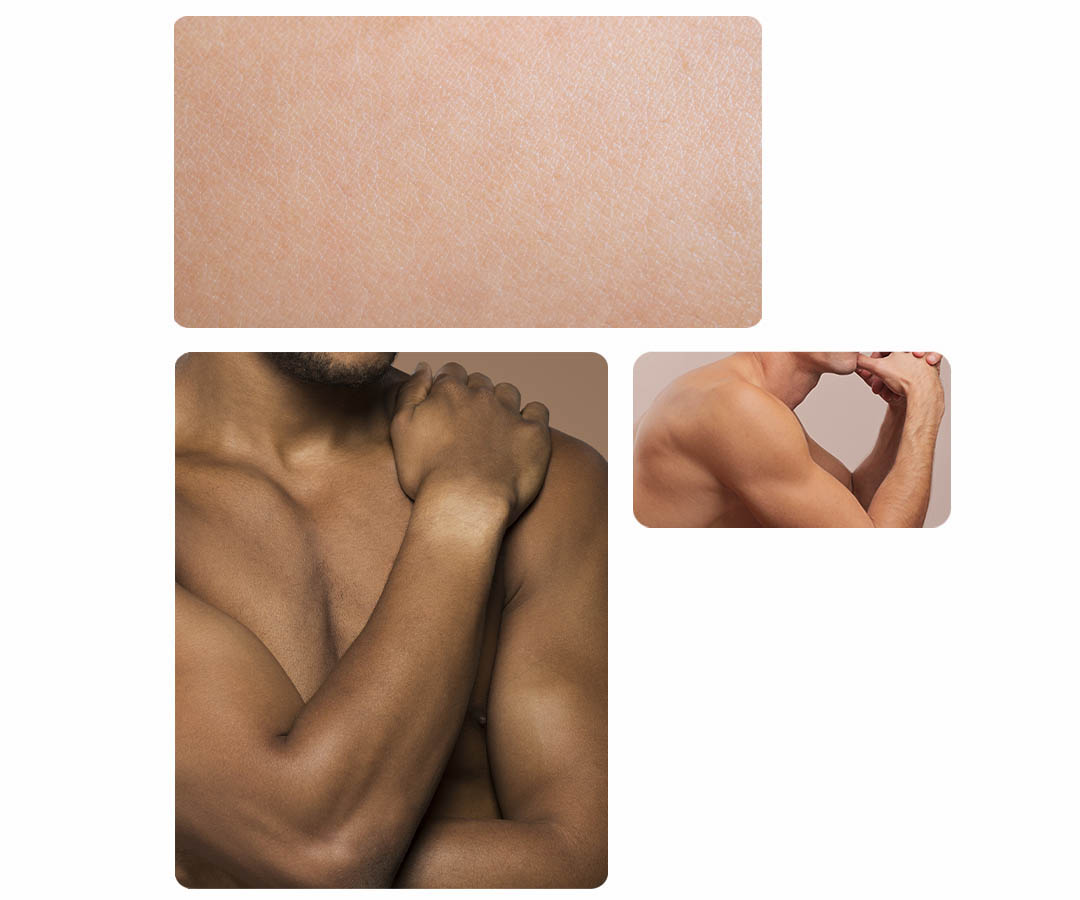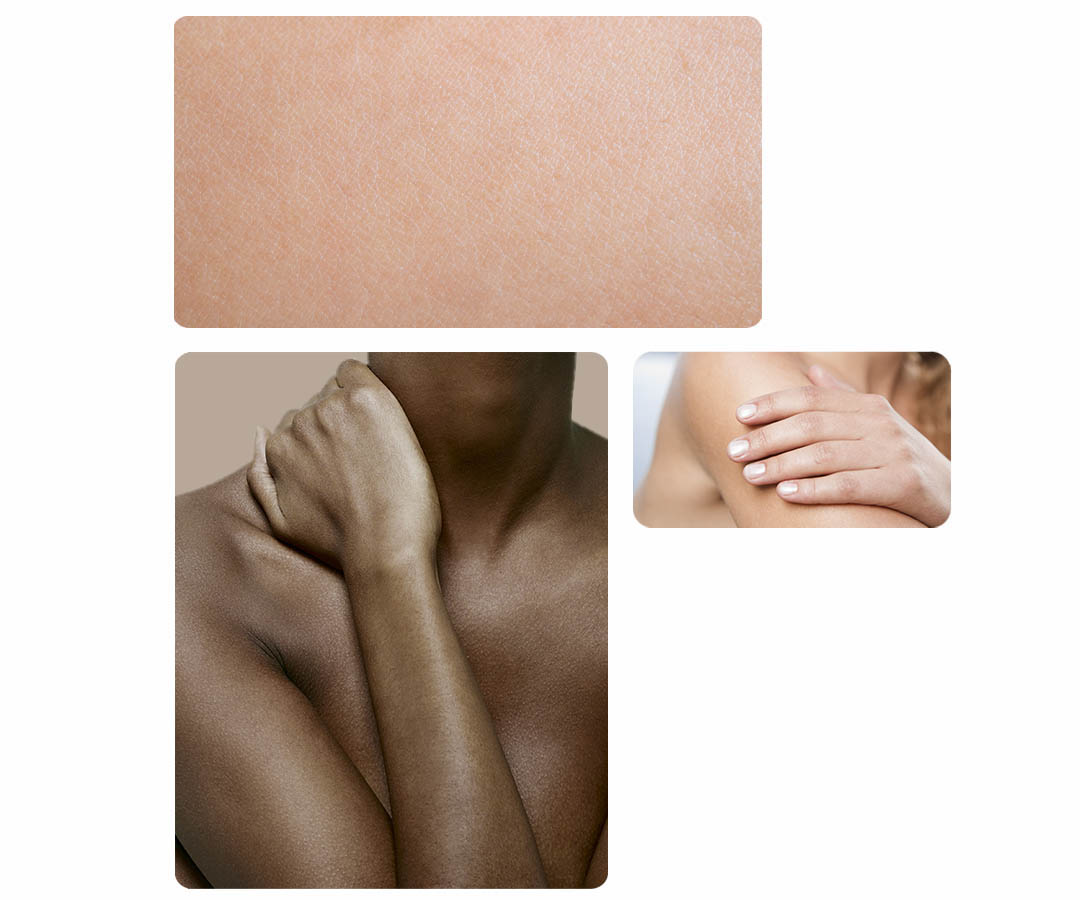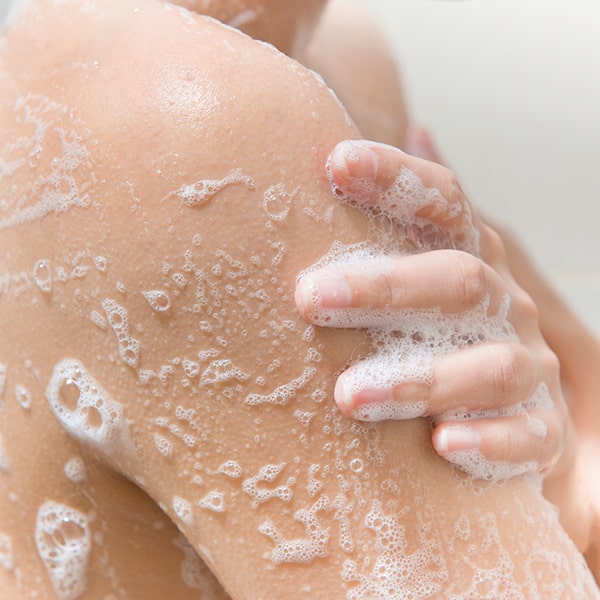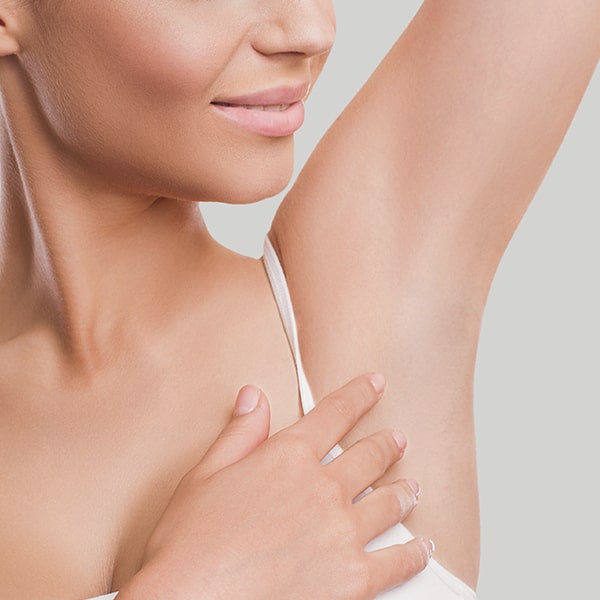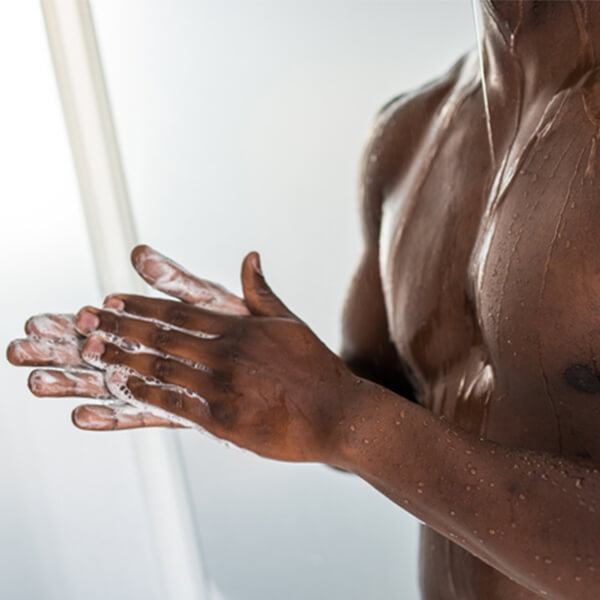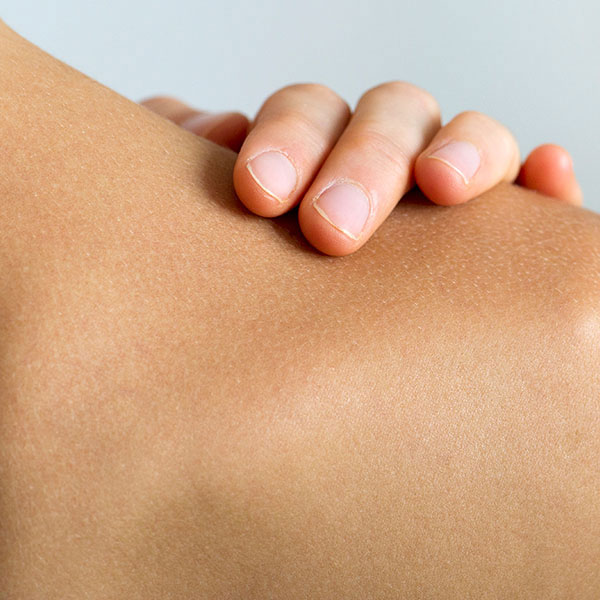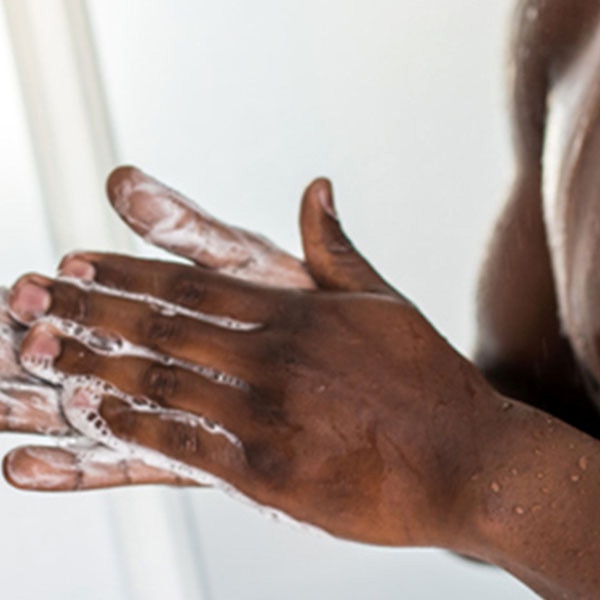YOUR RESULTS
You have Sensitive skin
Your skin reacts to external factors and allergens, which cause it irritation, rashes and redness. In sensitive skin, the outer layer tends to have a weakened barrier function, so it can be damaged more easily.
Weather, diet, pollution and stress can exacerbate sensitive skin. Protect it by choosing products that have been dermatologically tested, and are pH neutral, hypoallergenic, and free from dyes and fragrances.
Take special care of your skin in hot, cold or windy weather to prevent it from getting chapped or irritated.







